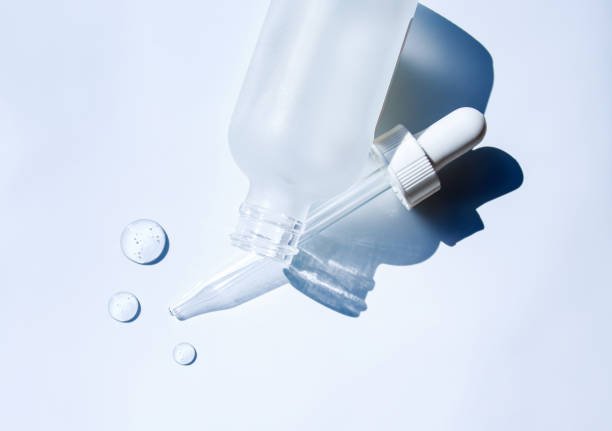Acne scars can be a frustrating reminder of past skin troubles, and they can sometimes linger long after the acne itself has cleared up. While there are many treatments available to help reduce the appearance of scars, from professional treatments like laser therapy to over-the-counter creams, natural oils are becoming increasingly popular as a gentle and effective alternative. In this article, we’ll explore some of the best oils that can help fade acne scars, how they work, and tips on using them safely.

What are the types of Acne Scars?
Before diving into specific oils, it’s important to understand what causes acne scars. Acne scars form when there’s damage to the skin’s tissue after inflammation from acne. These scars can manifest in various forms, including:
• Atrophic scars: Indented scars like ice pick, boxcar, and rolling scars.
• Hypertrophic scars: Raised scars that usually occur when there is an excess of collagen during healing.
• Post-inflammatory hyperpigmentation (PIH): Dark spots that appear after acne heals, which are more common in darker skin tones.
Each type of scar requires different treatments, and while oils may not completely remove deep scars, they can significantly improve texture, reduce pigmentation, and promote skin healing.
How Oils Help with Acne Scars
Natural oils, particularly essential oils and carrier oils, contain antioxidants, anti-inflammatory agents, vitamins, and essential fatty acids. These properties can help:
• Reduce inflammation: Soothe the skin and reduce redness.
• Stimulate collagen production: Essential for skin elasticity and scar reduction.
• Fade hyperpigmentation: Even out skin tone and lighten dark spots.
• Moisturize deeply: Hydration is key to improving the appearance of scars and preventing further irritation.
the best oils are known for their effectiveness in treating acne scars.

1. Rosehip Seed Oil
Why It’s Effective: Rosehip seed oil is packed with vitamins A and C, both of which are known for their ability to promote cell regeneration and improve skin texture. Vitamin A (often found in retinoid-based acne scar treatments) can help exfoliate the skin and stimulate collagen production, while vitamin C is a potent antioxidant that helps reduce pigmentation.
How to Use: Apply a few drops of rosehip oil directly to the skin after cleansing. Massage it gently until it’s fully absorbed. You can use rosehip oil daily as part of your evening skincare routine.
Tip: Make sure to use cold-pressed, organic rosehip oil for maximum potency. This oil is also gentle and works well for all skin types, especially dry and sensitive skin.

2. Tea Tree Oil
Why It’s Effective: Tea tree oil is known for its powerful antibacterial and anti-inflammatory properties, which can help prevent future breakouts and reduce the redness of existing scars. It also contains antioxidants that promote healing.
How to Use: Tea tree oil is highly concentrated and can irritate the skin if used undiluted. Mix a few drops with a carrier oil like jojoba oil or rosehip oil, and apply it directly to the affected areas. Use it once or twice a week, especially if you have sensitive skin.
Tip: If you’re acne-prone, tea tree oil is particularly effective at treating active breakouts, which can help prevent new scars from forming.

3. Lavender Oil
Why It’s Effective: Lavender oil has antimicrobial, anti-inflammatory, and healing properties. It’s known for promoting the regeneration of skin cells, which makes it ideal for both scars and minor burns. It can help fade the appearance of scars over time and improve skin texture.
How to Use: Lavender oil can be used directly on the skin in small amounts or diluted with a carrier oil. Use a few drops and apply to the affected areas, especially before bed. Its calming scent also makes it a popular choice for a nighttime skincare routine.
Tip: If you have sensitive skin, do a patch test first, as some people can experience irritation with lavender oil.
4. Frankincense Oil
Why It’s Effective: Frankincense oil is known for its ability to improve skin elasticity and tone, making it a great choice for reducing the appearance of scars. It’s also an astringent, which means it helps to tighten the skin, reduce large pores, and improve skin texture.
How to Use: Mix frankincense oil with a carrier oil like jojoba or almond oil, and apply it to your scars. Frankincense oil is potent, so it’s best to use it diluted.
Tip: Regular use of frankincense oil can also help reduce fine lines, making it a good choice if you’re also looking to improve the overall appearance of your skin.

5. Jojoba Oil
Why It’s Effective: Jojoba oil is technically a wax, not an oil, but it closely resembles the skin’s natural sebum, making it non-comedogenic and suitable for acne-prone skin. It contains vitamin E and B-complex vitamins, which help repair damaged skin and lighten scars.
How to Use: Jojoba oil can be used on its own or as a carrier oil with other essential oils. Apply a few drops to your face after cleansing, and massage it in. Since it’s lightweight, it can be used both morning and night.
Tip: Jojoba oil is ideal for oily and acne-prone skin types, as it helps balance sebum production without clogging pores.

6. Coconut Oil
Why It’s Effective: Coconut oil is rich in antioxidants and fatty acids that help improve skin texture and promote healing. It’s particularly beneficial for moisturizing dry skin and may help lighten scars over time.
How to Use: Apply a small amount of coconut oil directly to the scarred area and massage it gently. Coconut oil can be quite heavy, so it’s best to use it at night or in specific areas rather than the whole face.
Tip: While coconut oil has many benefits, it may clog pores for those with acne-prone skin. If you’re prone to breakouts, you might want to use it only on scars rather than active acne areas.
7. Vitamin E Oil
Why It’s Effective: Vitamin E oil is widely known for its scar-healing properties. It’s a powerful antioxidant that helps repair damaged skin cells and improves elasticity. It’s often recommended for reducing the appearance of scars, though some people find it too thick or heavy for their skin type.
How to Use: Apply vitamin E oil directly to scars or mix it with a lighter oil like rosehip or jojoba oil. Because of its thickness, it’s best used in the evening.
Tip: Do a patch test first. Vitamin E can cause skin irritation in some people, and it can be quite thick, which might not work well for everyone’s skin.
8. Argan Oil
Why It’s Effective: Argan oil is rich in antioxidants, vitamin E, and essential fatty acids, which make it ideal for reducing inflammation and promoting skin repair. It’s lightweight and non-comedogenic, making it suitable for all skin types, including acne-prone skin.
How to Use: Apply a few drops of argan oil to clean skin, focusing on areas with scars. You can use it daily, and it works well in combination with other oils like rosehip for added scar-fading benefits.
Tip: Look for 100% pure, cold-pressed argan oil for the best results.
9. Tamanu Oil
Why It’s Effective: Tamanu oil is less known but highly effective for scar treatment. It has unique healing properties that can stimulate cell regeneration and reduce the appearance of scars. It also has anti-inflammatory and antibacterial properties, making it useful for both scars and acne.
How to Use: Apply a few drops of tamanu oil to the scarred areas after cleansing. You can use it on its own or blend it with a lighter oil if you prefer.
Tip: Tamanu oil has a thicker consistency and a distinctive smell, so a small amount goes a long way.
Safety Tips for Using Oils on Acne Scars
While oils can be highly beneficial, it’s important to use them correctly to avoid irritation or breakouts. Here are some tips:
1. Dilute Essential Oils: Essential oils are potent and should be diluted with a carrier oil before applying to the skin. A common ratio is 1-2 drops of essential oil per teaspoon of carrier oil.
2. Patch Test First: Always do a patch test on a small area of skin to ensure you don’t have an allergic reaction.
3. Start Slowly: If you’re new to using oils, introduce them gradually into your routine to see how your skin reacts.
4. Use Sunscreen: Some oils, especially those rich in vitamin A or C, can make your skin more sensitive to the sun. Always use sunscreen during the day to protect your skin.
5. Consistency is Key: Oils work slowly, so be patient and consistent. It may take a few weeks to see noticeable results.
Conclusion
While acne scars can be persistent, using the right oils can make a significant difference in fading them over time. Rosehip seed oil, tea tree oil, lavender oil, and many others mentioned above contain powerful nutrients and antioxidants that promote skin healing and improve overall texture. However, remember that individual results can vary, and patience is important.
For deep scars, combining oils with other treatments, such as microdermabrasion or chemical peels, may offer better results.
Natural oils are a gentle, cost-effective, and nourishing way to reduce acne scars. With regular use and consistent skincare.
sources
https://pmc.ncbi.nlm.nih.gov/articles/PMC9824697
https://www.healthline.com/health/beauty-skin-care/tea-tree-oil-for-acne-scars
https://www.webmd.com/skin-problems-and-treatments/acne/what-to-know-rosehip-oil-acne-scars



I learned a lot from the article and enjoyed it too🙏
Thank you noorhan